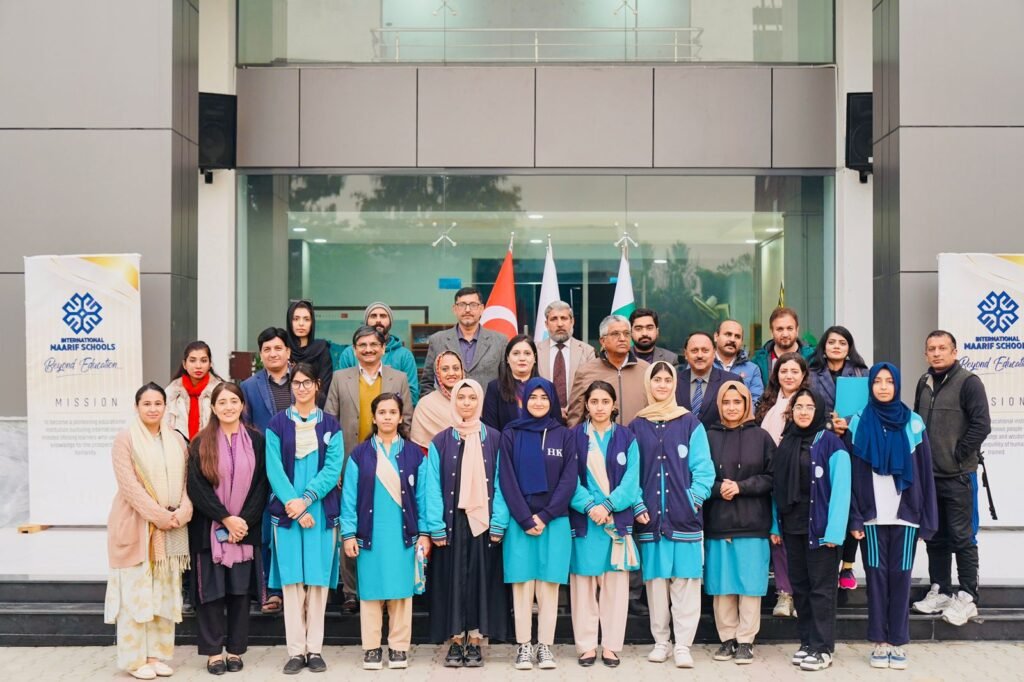Islamabad (TDI): Experts, environmental advocates, and young leaders gathered on Wednesday at the “Climate Baithak” to discuss climate change solutions and address the global environmental crisis.
The event was jointly organized by the Institute of Peace and Diplomatic Studies (IPDS) and the Environment Journalist Forum (EJF) in collaboration with International Maarif School, Islamabad.
Speaking on the occasion, Dr Farhat Asif, President of IPDS, urged the media and academia to take the lead in tackling climate challenges.
Read More: Climate Research Wing Launched in Islamabad
She warned about the damage to ecosystems and stressed the need for collective action.
“Climate change is threatening species across ecosystems to the brink of extinction. This gathering is a step toward collective action, where we can integrate solutions from different sectors to protect our planet,” she said.

Dr Zerfishan Adnan of Maarif School said there was a lack of awareness about practical climate solutions. She shared how her school’s student-led project to reduce single-use plastics was later supported by the Environmental Protection Agency (EPA).
Asghar Hayat, Secretary General of EJF, and Ali Jabir, President of EJF, urged youth to take action on climate issues. He said concrete steps should be taken to address climate risks.
Read More: G20 Summit Turns Focus to Climate Change
Dr Ejaz Ahmed from the Institute of Urbanism warned about the effects of rapid urbanization. He noted that urbanization in Pakistan had grown from 33% to 45%, causing deforestation and pollution.
He also highlighted Pakistan’s alarming waste problem, saying the country’s growing plastic and food waste crisis was causing environmental degradation.
“Globally, 42% of waste is plastic, while 38% is organic. In Pakistan, food waste is at an unsustainable level, ranking us seventh globally. This needs urgent action,” Dr Ahmed noted.
Former IG Forest Syed Mehmood Nasir discussed the human impact on ecosystems and urged simple communication of scientific knowledge. He used Margalla Hills National Park as an example.
Dr Zaigham Abbas from Pak-EPA outlined steps to reduce air pollution, including stricter vehicle emission controls and cleaner industrial technologies. The EPA is working with Punjab to expand these efforts.



